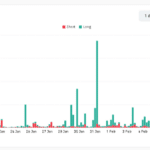Dec. 30 (Bloomberg)
By Carlos Torres
David Rosenberg drew on inspiration from market-rules theorist Robert Farrell and asset-bubble historian Charles Kindleberger to predict the economy’s demise this year.
Rosenberg, the chief North American economist at Merrill Lynch & Co. in New York, by January had already called the recession that this month was officially declared to have started in December 2007. He also said the Federal Reserve would lower its main interest rate to 1 percent by year-end, one-third of the median estimate of economists surveyed by Bloomberg News; by October, policy makers brought the rate to that level.
Rosenberg, 48, refused to trust his computer models, sensing that the end of the credit and housing-market booms would cause a deeper rout than most analysts thought. Now, he predicts the carnage will cause a 2.5 percent contraction in gross domestic product in 2009, and sees historians calling the current era “GDII,” a reference to the Great Depression.
Farrell developed his “10 Market Rules” during a 25-year stint as chief strategist at Merrill until 1992. He won Institutional Investor magazine’s award for overall stock market direction in 16 of 17 years, according to a Dec. 19, 1992, New York Times article.
Rules one through four, which include the belief that markets always return to long-run averages and excesses in one direction are invariably followed by excesses in the opposite direction, are applicable to this decade’s housing cycle, Rosenberg said.
Farrell’s rules “were a compass in terms of guiding me through the past three years,” said Rosenberg.
Kindleberger, the late economic historian who taught for 33 years at the Massachusetts Institute of Technology, is famed for his 1978 book “Manias, Panics and Crashes.” The work traced four centuries of boom-and-bust cycles, bringing to light a 17th century frenzy over Dutch tulips that sent investors offering land, houses, farm animals and gold in return for choice bulbs.
The severity of today’s housing bust, and the resulting collapse in credit, indicate that the U.S. won’t soon emerge from the already yearlong recession, according to Rosenberg.
“What we know about periods of asset deflation and credit contraction is that the impact on the economy tends to last for years not quarters,” he said, projecting housing is likely to contract through the end of 2009.
Sunday, January 4, 2009
Subscribe to:
Post Comments (Atom)



No comments:
Post a Comment